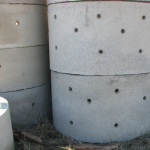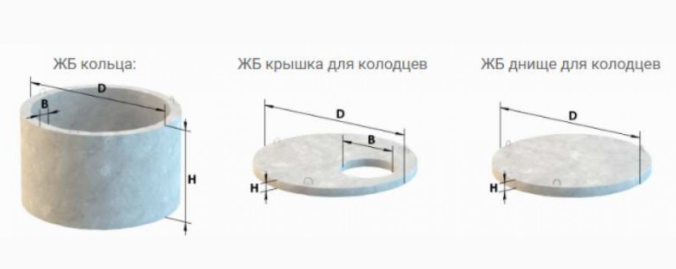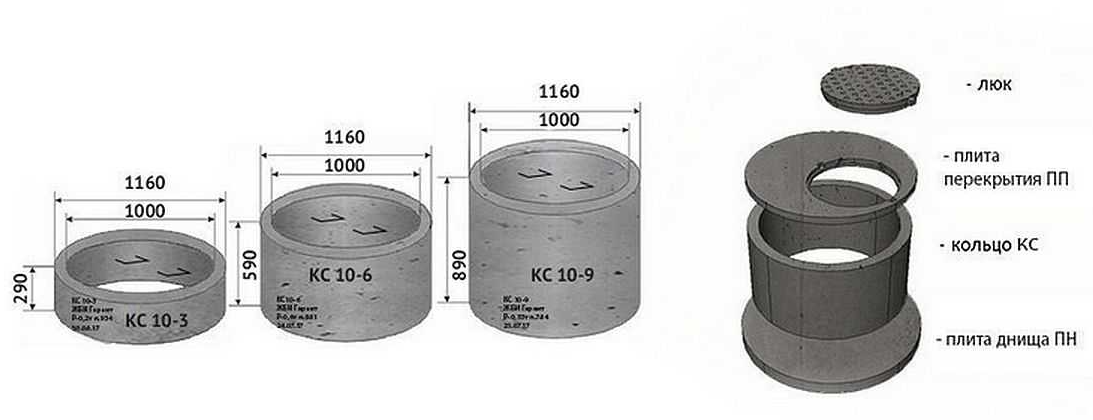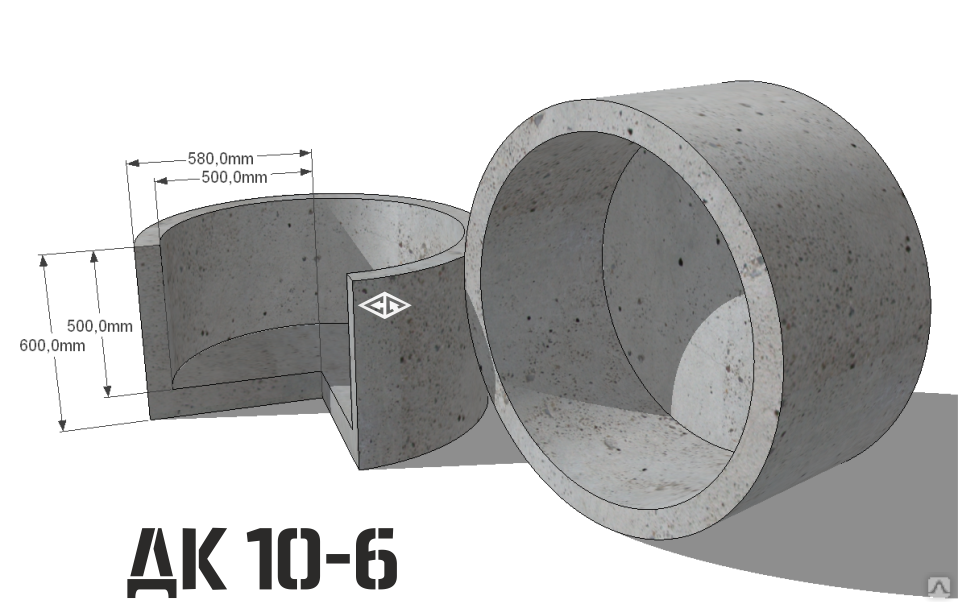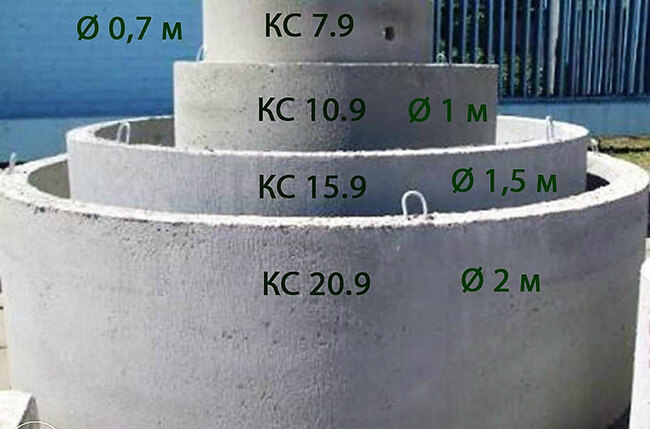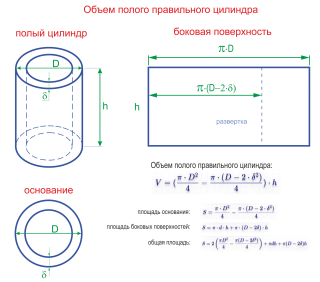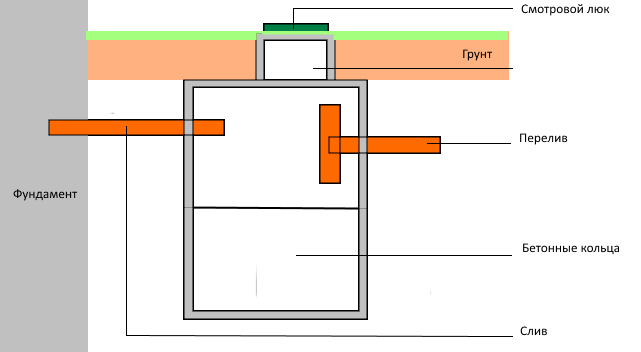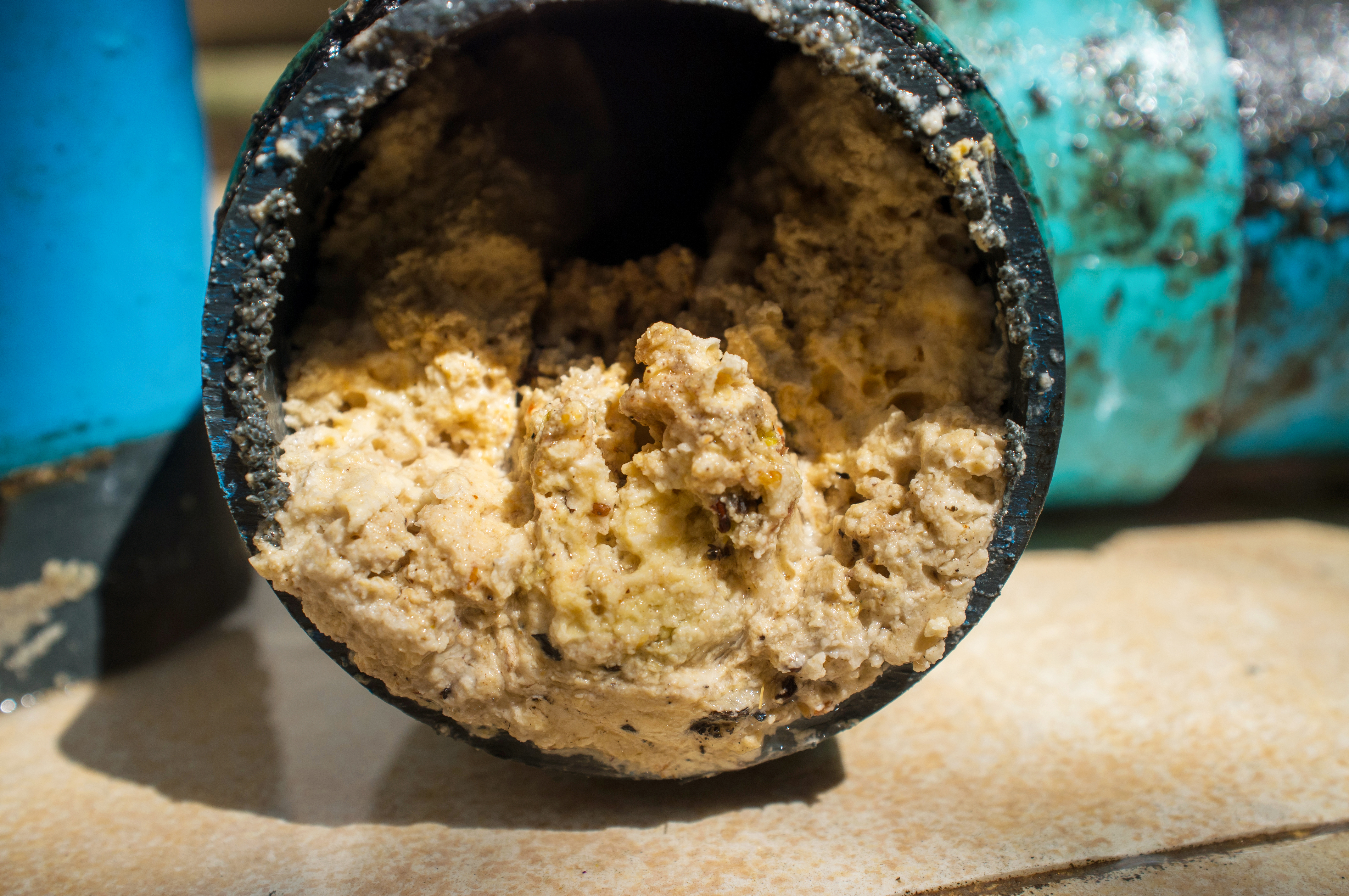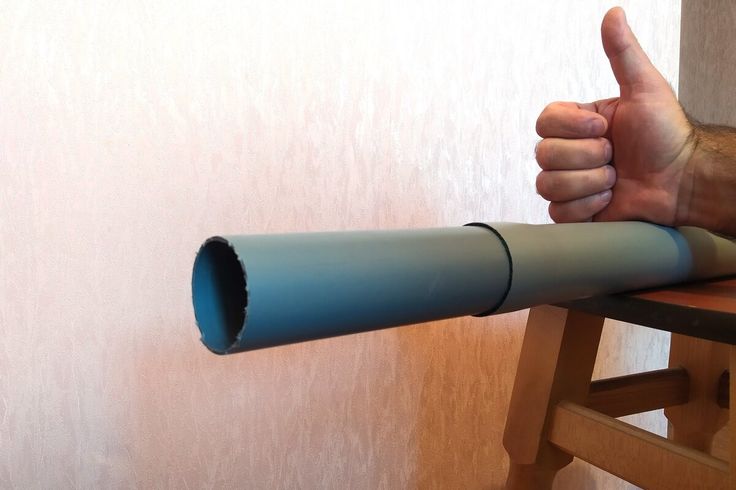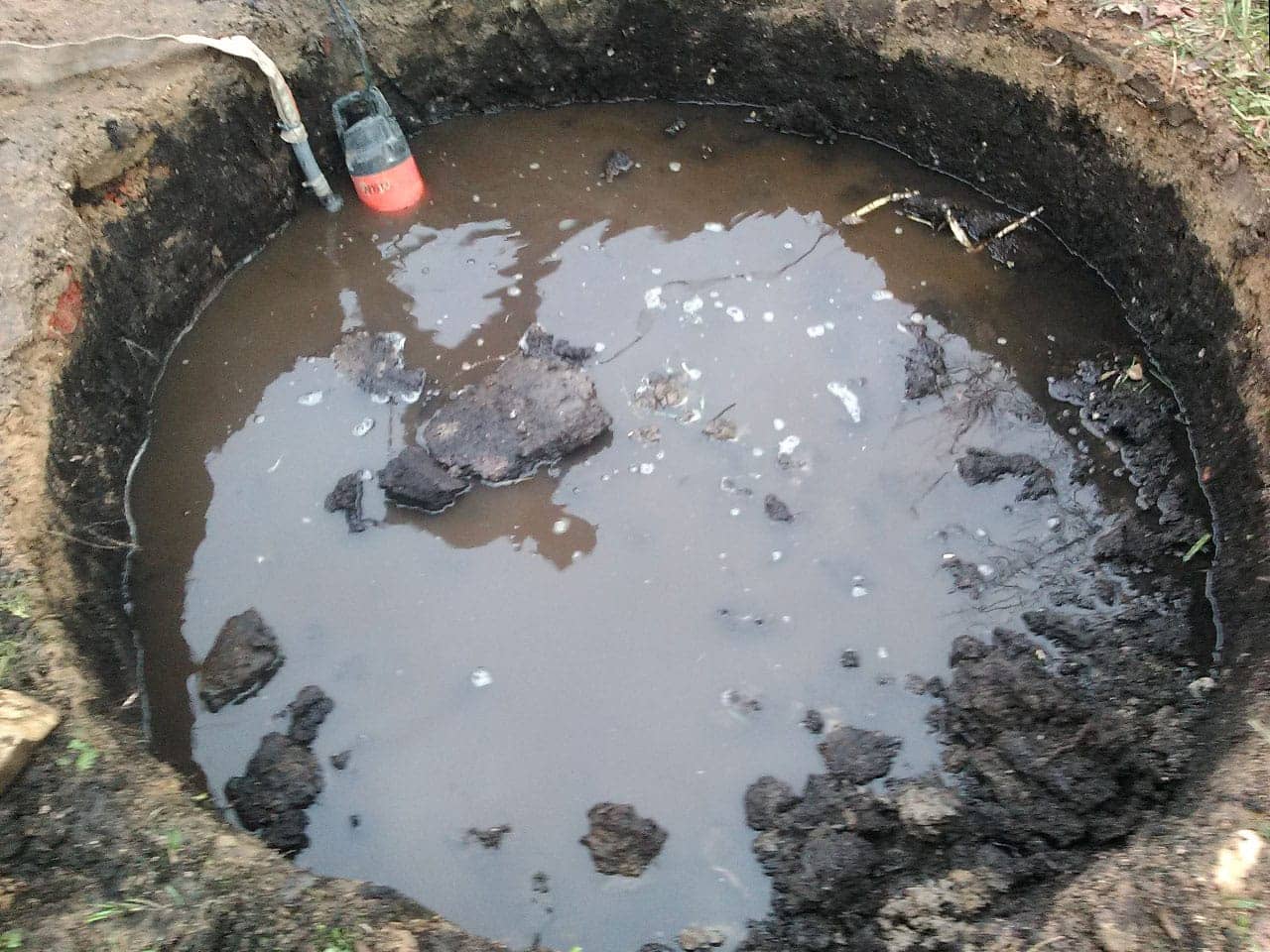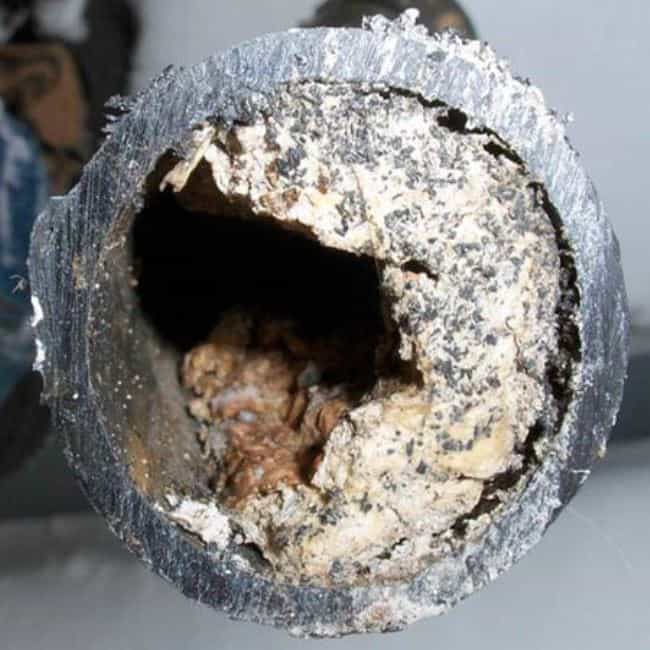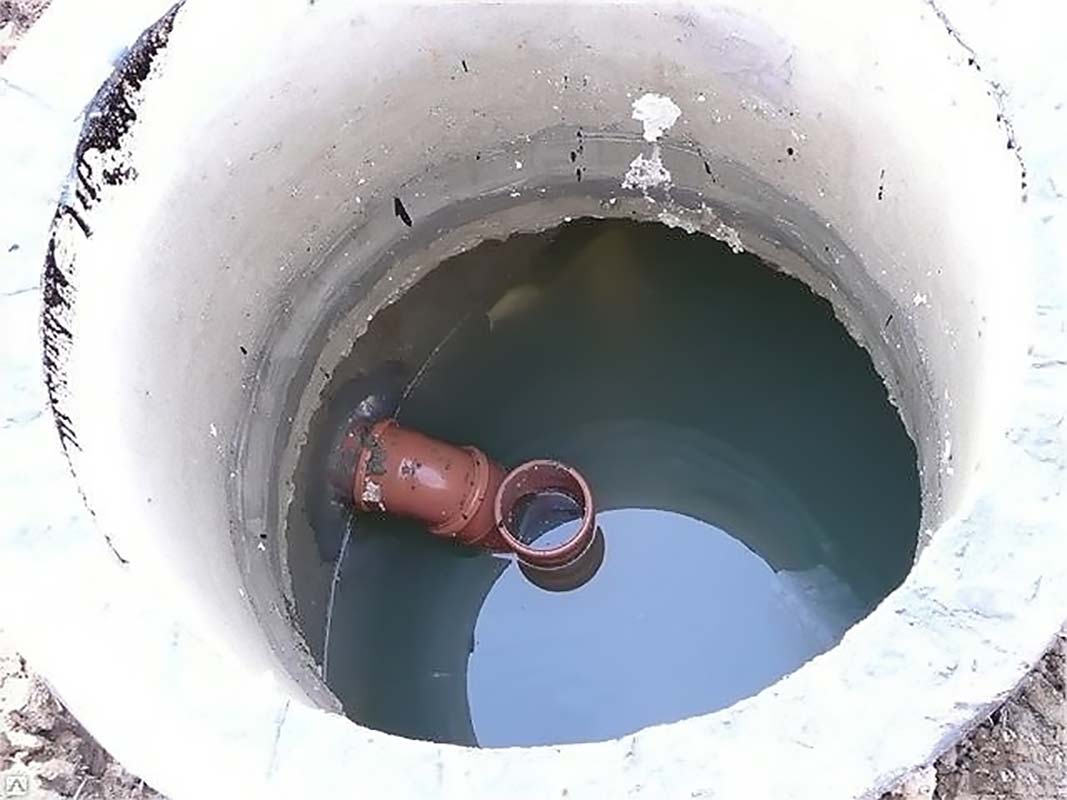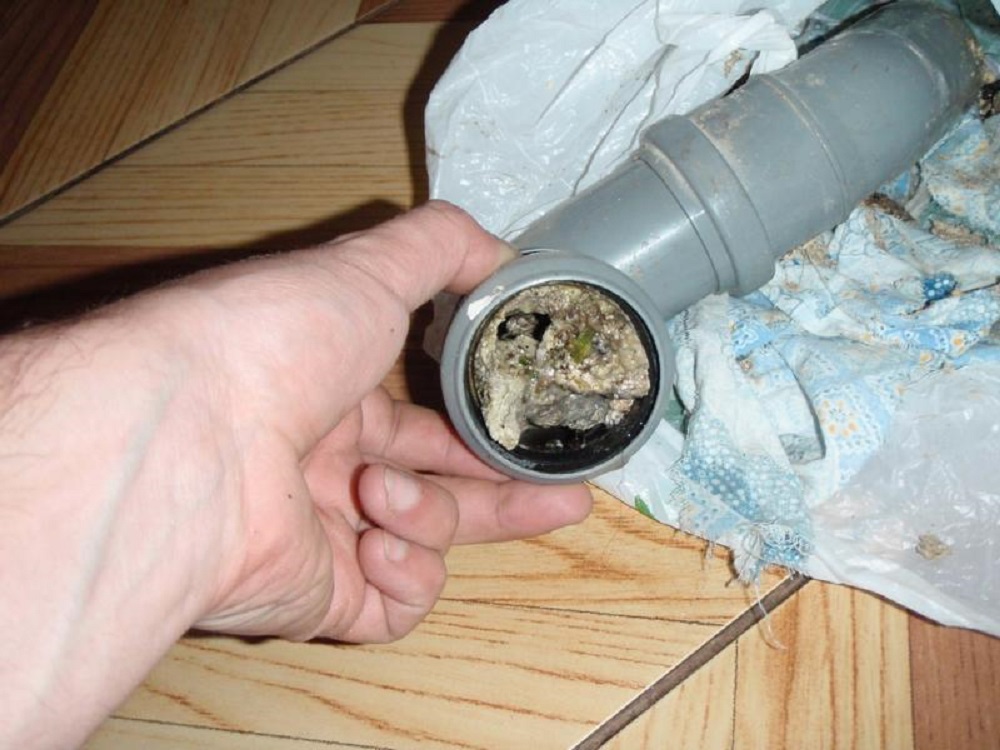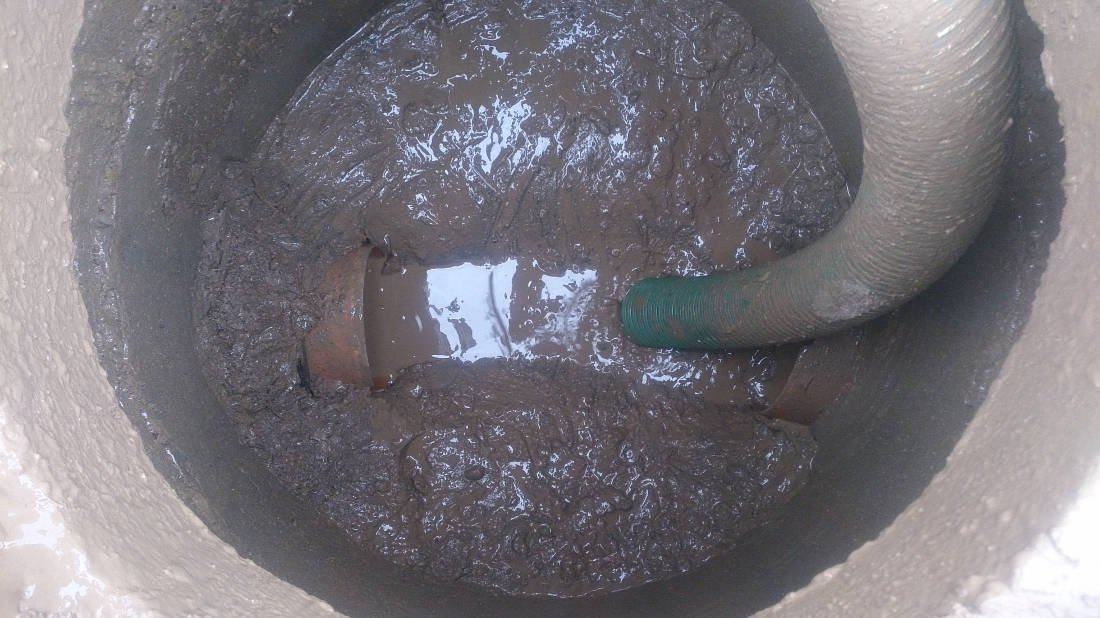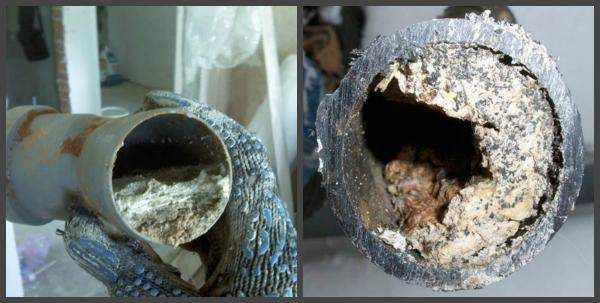Reinforced concrete rings are a popular building material that is often used in the construction of autonomous sewer systems. Wells are collected from them for draining the wastewater, where the latter are partially recycled. Rings are made by casting into molds. A concrete solution is used as a starting material. Previously, a reinforcing frame made of steel reinforcement is laid in the molds, which is assembled in the form of a lattice.
Types of concrete rings
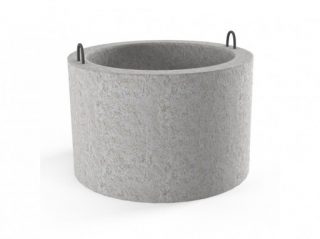
Manufacturers offer an expanded range of concrete products. Two or three decades ago, this material was presented in a single copy - solid rings with flat ends... Their installation was carried out using cement-sand mixture, which was used as a masonry mortar. Fastened the elements together metal staples.
Today on the market you can buy:
- With lock (folded) connection... The upper end is a rebate with an internal groove, the lower end is with an external one. When installed on top of each other, the folds are tightly adjoined. To increase the tightness of the junction, a sealant in the form of a rubber band or foamed polymer is placed between them.
- Filtration... Concrete rings, along the entire plane of which perforations are made in the form of through holes. Such products are used to form filtration wells into which clarified (purified) water is drained. It goes through holes, penetrating into the ground.
- Dobornye... These are non-standard sewer rings, which are used when the standard rings are not enough to provide the required height of the well. They are on the market with flat and folded ends.
Precast concrete manufacturers offer additional elements to the rings: well bottoms and lids with holes for hatches and ventilation pipes. Both elements are produced in accordance with the diameters of the reinforced concrete rings.
Product marking
All sewer rings and additional elements have standard marking:
- KS - wall ring;
- PD or PN - bottom plate;
- PP or PC - floor slab.
In addition to the letter designation, the marking also contains numbers. For example, KS 10-9:
- "10" is the inner diameter in decimetres, that is, it is 1 m;
- "9" is the height of the product (dm), that is, 90 cm or 0.9 m.
Manufacturers add another letter meaning to the marking. It means permeability of concrete. Normal permeability is denoted - N, low - P, especially low - O.
In addition to this type of marking, there is a classification that divides concrete rings by appointment.

Other brands:
- KO - a ring used as support part well structure, placed in the lower part of the assembled structure;
- KVG - can be used for the construction of wells intended for wiring gas or water supply.
- KLK used for the construction of wells for storm sewerbuilt inside the city;
- KFK used for septic tanks and fecal systems.
All types of concrete rings differ from each other brand of concrete solution, as well as the degree of permeability of the starting material.KVG products are not exposed to moisture loads during operation. They are made of concrete with a particularly low permeability, which reduces the price of the product.
Manufacturers offer bottom rings... Elements of this type are marked as DC... When creating a sealed well structure, such products are placed at the very bottom. There is no need to lay the bottom and seal the joint between it and the bottom ring.
Standard sizes and volume
In concrete rings, three dimensional parameters are standardized: inner diameter, height and wall thickness. The table shows these parameters, plus the weight of the products.
| Name | Dimensional parameters, mm | Weight, kg | ||
| diameter | height | wall thickness | ||
| CS 7-1 | 700 | 100 | 80 | 46 |
| CS 7-1.5 | 700 | 150 | 80 | 68 |
| CS 7-3.5 | 700 | 350 | 80 | 140 |
| CS 7-5 | 700 | 500 | 80 | 230 |
| CS 7-6 | 700 | 600 | 80 | 275 |
| COP 7-9 | 700 | 900 | 80 | 410 |
| KS 7-10 | 700 | 1000 | 80 | 457 |
| KS 10-5 | 1000 | 500 | 80 | 320 |
| KS 10-6 | 1000 | 600 | 80 | 340 |
| KS 10-9 | 1000 | 900 | 80 | 640 |
| KS 12-10 | 1200 | 1000 | 80 | 1050 |
| KS 15-6 | 1500 | 600 | 90 | 900 |
| KS 15-9 | 1500 | 900 | 90 | 1350 |
| KS 20-6 | 2000 | 600 | 100 | 1550 |
| KS 20-9 | 2000 | 900 | 100 | 2300 |

Concrete ring volume
S = πD² / 4 = 3.14D² / 4.
For example, for a brand ring KS 10-9, where the diameter is 1 m, the height is 0.9 m:
S = 3.14x1² / 4 =0.785 m² Is the cross-sectional area.
V = SxH, Where H - the height of the ring. It turns out: V = 0.785x0.9 =0.7 m³ Is the volume of the KS 10-9 ring.
Calculation of the volume of a sewer well for a house
The sewerage system is calculated taking into account the drainswhich are discharged into a prefabricated reinforced concrete well. The more there are, the more capacity should be. The calculation will require three parameters:
- number of peoplepermanently residing in the house;
- daily ratewhich accounts for for one person - this indicator is standard, in SNiPs and SanPiNs it is indicated 200 liters per day or 0.2 m³ / day.;
- time, for which bacteria process organic matter - this indicator is also standard - 3 days.

The indicated values must be multiplied among themselves. The final indicator is the required volume of the sewer well. For example, if the house permanently resides 3 persons:
V = 3х0.2х3 = 1.8 m³.
To obtain such a volume of a concrete tank, the resulting value divided by the volume of one ring... For example, with the same brand KS 10-9:
1,8:0,7=2,57, round up, it turns out - 3 rings.
It is also necessary to take into account the moment that the sewer pipe is introduced into the well at a certain distance from the upper end of the upper element... This the indicator should not be less than 30 cm... And this volume will have to be taken into account when calculating the number of concrete products.
In some regions, it is problematic to make large burials. This is hindered by permafrost or high water table... In this case, they are trying to install reinforced concrete larger diameter rings.
For example, if rings are selected KS 20-9, the volume of one element is 2.8 m³... That is, for a house where 3 people live, one ring is more than enough. It is not necessary to dig a deep pit under it, as much as possible deepens 70-80 cm... This simplifies construction work and reduces the budget. Therefore, it is very important to first carry out all the calculations, and then proceed to construction work and the acquisition of materials.
An example of an overflow septic tank:

